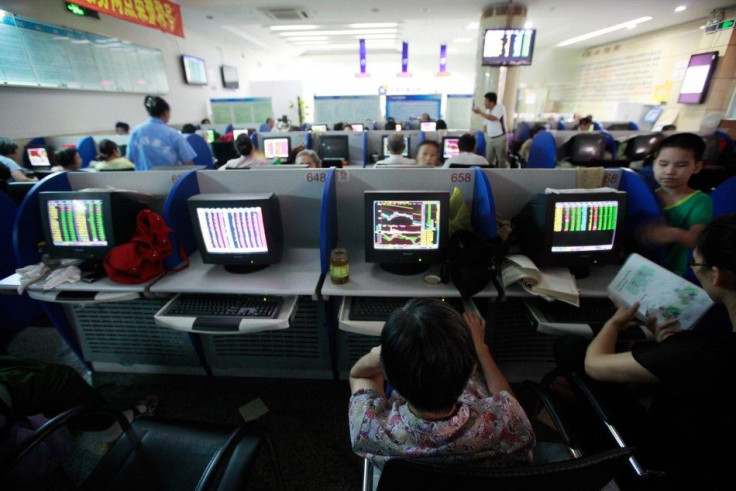Asian Markets Fall Sharply Following Fed's Signal On Ending Bond-Buying; Weak China HSBC Flash Manufacturing PMI

Asian stocks traded lower on Thursday after the U.S. Federal Reserve signaled an end to monetary stimulus measures by mid-2014 and worries over a slowdown in China's manufacturing sector.
The Shanghai Composite Index was down 1.79 percent in the morning trading session. The index had closed at a six-month-low on Wednesday. Hong Kong’s Hang Seng Index dropped 2.63 percent heading toward a nine-month-low. Japan’s Nikkei fell 1.83 percent while South Korea’s KOSPI Composite Index traded down 1.93 percent.
Asian stocks outside Japan suffered their biggest daily loss on Thursday since late 2011, as the MSCI's broadest index of Asia-Pacific shares outside Japan sank 3.5 percent.
In a press conference held on Wednesday after the Fed’s two-day policy meeting, Chairman Ben Bernanke said the Fed is optimistic about the economic recovery and it could start tapering its monthly bond-buying program “later this year” and wind up altogether by mid-2014, if the economy recovers as projected by next year.
"The committee currently anticipates that it will be appropriate to moderate the monthly pace of purchases later this year, and if the subsequent data remain broadly aligned with our current expectations for the economy, we will continue to reduce the pace of purchases in measured steps through the first half of next year, ending purchases around mid-year," Bernanke said, according to Reuters.
By end of 2014, Fed forecasts the jobless rate between 6.5 percent and 6.8 percent, and pegs inflation around 2 percent.
U.S. markets reacted sharply to Bernanke’s comments as the Dow Jones Industrial Average closed down 1.35 percent at 15112.19 on Wednesday, while Treasury yields touched a 15-month-high, and the dollar strengthened against all major currencies.
“What caught the market off guard is that the Fed anticipates the pace of recovery in the labor market to be quicker than what the market previously predicted. Consequently, the possibility of scaling down the current bond-buying program is likely to be sooner than what is currently priced in,” Miguel Audencial, a trader at CMC Markets, told MarketWatch.
Sentiment, already downbeat following the FOMC meeting, appeared to worsen after the preliminary reading of China's manufacturing PMI sank to a nine-month-low of 48.3 in June in comparison to a final reading of 49.2 in May. A reading below 50 indicates contraction in manufacturing activity.
China Factory Activity Deteriorates
HSBC’s preliminary reading of China's manufacturing Purchasing Managers Index, or PMI, for June showed that manufacturing activity in the country slipped to a nine-month-low of 48.3, fueling investors’ fears about a deterioration in the Chinese economy. The index stayed below the 50-level -- which denotes contraction -- for a second-straight-month.
Economists polled by a Bloomberg News survey had forecast the index to record a reading of 49.1.
“Beijing prefers to use reforms rather than stimulus to sustain growth. While reforms can boost long-term growth prospects, they still have limited impact in the short term,” Hongbin Qu, HSBC's China economist said, in a statement.
Meanwhile, borrowing costs in China's interbank money markets rallied on Thursday, with rates on the overnight and seven-day repurchase agreements jumping to record highs, Reuters reported.
The rate on the benchmark weighted-average seven-day repurchase, or repo, soared 3.80 percentage points to a record high of 12.06 percent, while the rate on the overnight repo rate surged by 5.98 percentage points to 13.85 percent, according to the report.
© Copyright IBTimes 2024. All rights reserved.





















